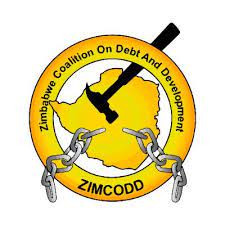
SOCIAL justice watchdog, the Zimbabwe Coalition on Debt and Development (Zimcodd), has raised concern over revelations that the Public Service, Labour and Social Welfare ministry utilised only 6,8% of its allocated resources despite being responsible for the administration of social protection services.
Finance, Economic Development and Investment Promotion minister Mthuli Ncube disclosed this last week when he presented the 2024 mid-year budget and economic review statement.
According to Ncube’s mid-year budget and economic review only nine out of 39 sectors utilised over 50% of their allocated resources
These were Transport and Infrastructural Development (244,5%), Zimbabwe Council of Chiefs (118,7%), Office of the President and Cabinet (91,7%), Finance, Economic Development and Investment Promotion (84,8%), Local Government and Public Works (72,2%), Lands, Agriculture, Fisheries, Water and Rural Development (69,1%), Public Service Commission (67,2%), Zimbabwe Electoral Commission (55%) and Home Affairs and Cultural Heritage (54,7%).
“While the above sectors are critical in national development and growth, it is imperative to note that their services do not directly bring change and transformational impact into the livelihoods of the Zimbabwean communities inasmuch as social sectors do,” Zimcodd’s latest report read.
“It is worrisome to note that, the [Public Service, Labour and Social Welfare ministry] only utilised 6,8% of its allocated resources, yet this is the ministry that is responsible for the administration of social protection services such as Basic Education Assistance Module, health assistance, harmonised cash transfer for the elderly and vulnerable groups and food deficit mitigation programme.”
Other social service ministries that utilised meagre resources are Health and Child Care, which used 26,9%, Higher and Tertiary Education, Innovation, Science and Technology Development (33%), Youth Empowerment, Development and Vocational Training (34,9%), Primary and Secondary Education (46,8%) and Women’s Affairs, Community, Small and Medium Enterprises (37,9%).
“It is ironic that at a time when government expenditure towards social service delivery should be accelerated due to social and economic challenges as well as institutional and infrastructural gaps, the ministries have only used a paltry of the appropriated resources,” the organisation said.
- ‘Govt pampering looters with tax breaks’
- 5 more UZ students arrested
- Calls for probe into Parly laptops saga
- Govt sleeping on the wheel: Zimcodd
Keep Reading
Zimcodd said the mid–year review also showed that while Zimbabwe had significantly improved in budget and debt transparency, as indicated by the 2023 International Budget Partnership Open Budget Survey findings, the unsustainable debt continues to spike uncontrollably.
“Total public and publicly guaranteed (PPG) debt stock jumped massively by 19,8% to US$21,2 billion at the end of December 2023 from US$17,7 billion reported in September 2023. The total PPG debt stock equals 96,7% of the 2023 national output and at least 80% of external debt is arrears and penalties.
“This depicts a low capacity to clear arrears and penalties to get new cheap lines of credit and will force indulgence in risky resource-backed loans and excessive domestic borrowing.
“Also, about 97,2% of total PPG debt stock is denominated in foreign currency, posing a significant risk to the durability of the local currency.”










